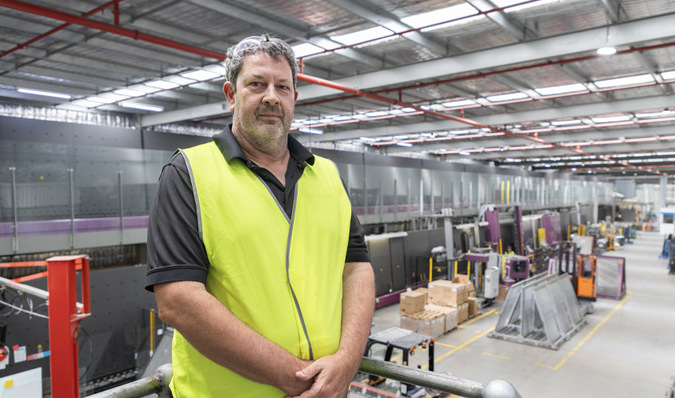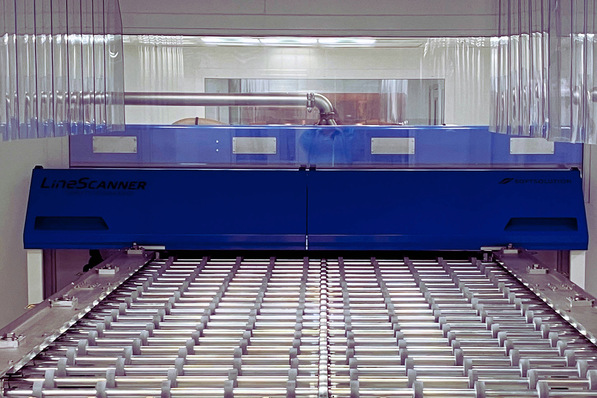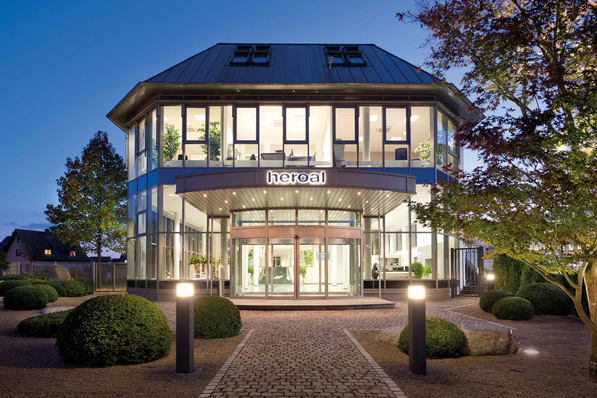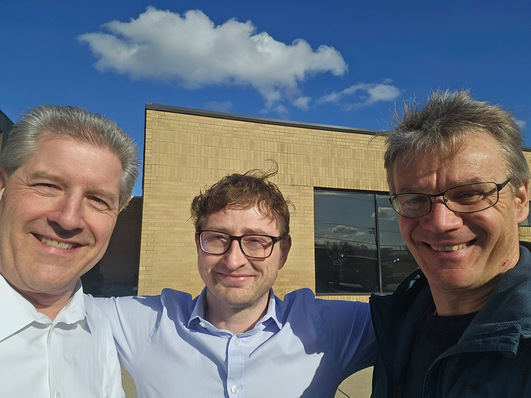Glaswelt: Mr Cortisse, the current situation has shown that precisely in times of crisis, functional software is the basis for keeping things running. How have you been assisting customers during the crisis and how do you keep support going?
Alfred Cortisse: Yes, the crisis, which arose quite spontaneously, has shown us how essential a well-oiled system of personnel, software, and machines is for the success of an operation. This is true even if no one actually has to run to the trouble spots in question in every case; it is possible to keep production running from a home office.
The crisis has demonstrated why it is more important than ever to work with reliable solutions and partners. As the world's leading software producer for the flat glass and window production industry, we have long offered our customers professional, multilingual service. This service is available thanks to our international structure, with subsidiaries in the USA and Australia in other time zones; we can therefore also offer service outside of normal office hours.
Glaswelt: What does a processor have to do to ensure that the operation can keep running during the crisis? Which departments can work easily from a home office, for example?
Alfred Cortisse: It's important for operations to keep their software up to date. This allows them to react quickly to changes. And it allows us to help them with new functions in timely fashion. With today's cloud solutions and current terminal servers, administrative tasks can be handled very well and efficiently from the home office. Thus, all commercial processes and work preparation can be done remotely.
Glaswelt: Can you explain a few technical details about how this works?
Alfred Cortisse: Technically it's no problem to work from home today: with a VPN connection, you can access the company server from your home office and work just like you can on-site. Of course this assumes that you have a good Internet connection at home, something that is generally not a problem these days. However, even if you are still using production terminals and generating the labels at each workstation, for example, working remotely still makes life easier. For precisely the machine data currently required is generated and nobody has to distribute data media and/or labels to the workstations in question. You can also view reports from the home office. Assuming you have appropriate operational agreements, production can also be monitored well remotely.
Glaswelt: How is data security guaranteed with the online connection?
Alfred Cortisse: Thanks to encryption, a VPN offers a high standard of security. Checks for authorization are done in the home office exactly as on a workstation on company premises. Special agreements apply for remote maintenance. And special, secured access to the systems also has to be set up for our employees.
See also this article:
Let's twist again: The Omniturm in Frankfurt
For larger customer groups, multi-factor security systems are also used for remote maintenance; they provide personal and temporally restricted, documented access. In some cases, access to productive systems is only granted after personal consultation.
Glaswelt: Do you think that the Corona crisis will change work structures in our industry, and if so, how?
Alfred Cortisse: Many industrial operations are already a ways down the road toward digitalizing. The current crisis will accelerate this. With automation, bidirectional data exchange with machines will be an unavoidable step in the future. Downstream processes will adjust dynamically in real time. By contrast, process documentation is still frequently done manually. Producers' liability is becoming a big topic. Without digitalization, the proof required for this is very difficult or impossible to provide, and it's frequently incomplete.
From my point of view, we have seen recently that you can work very well together online. I think we are much more efficient with some of our customers. Earlier, we collected topics in order to plan out days so that travel time was worthwhile. Today, experts meet virtually and work together on projects. Travel time has become constructive work time. We are experiencing digitalization in the way we interact with one another, with regard to topics, and especially using software for online teamwork; the result is an entirely new form of cooperation. I'm convinced that the way we cooperate will change permanently.
The interview was conducted by Matthias Rehberger.













